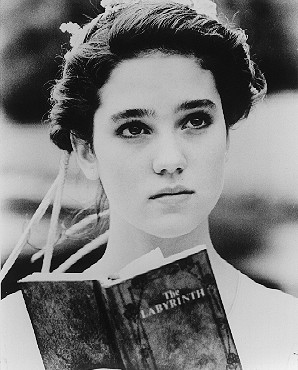I am a pretty voracious reader; I enjoy a good book, high literature, modern short stories, early science fiction, all sorts of different, exciting books.
Since the beginning of the year, I've finished a few books and been at a bit of a loss for my next book(s). I tend to read at least two if not four or five different books at the same time. I've always done this, even as a young girl. I generally have a book in my handbag, a book on my nightstand, and a book in the living room (with an additional book in the car, or one at my desk at the office).
My handbag book is currently Foundation by Isaac Asimov. I've decided to re-read these books for pleasure as well as to retrain my science fiction mind. I just recently finished Deadline by John Dunning, a mystery based off of Mr. Dunning's experiences working at the Denver Post (a local newspaper). His books always keep me reading, and I enjoy the ride. Before that was the Medusa Stone by Jack Du Brul. A far flung, diamond chase across the deserts of Africa and into the politics of the Middle East. I'm the first to admit that I am not always the first to figure out whodunnit or where a mystery is leading, but I enjoy the relaxation of knowing that everything will be tied up in a nice neat bow at the end. Books such as this are mind-candy to me; a palate cleanser of sorts. It's a pleasure to lose myself in the twists and turns of the plot.
I've also recently finished three nightstand books (these tend to wander about the house as I often wish to read more than just a few minutes at bed-time). I think this is where my wandering is coming from, as one book was the finish to a six book series (one of my very favorite series) and another is the third of a series (book 4 is out; but not in my hot little hands).
Fool's Fate by Robin Hobb finished the Tawny Man series, which began with the Farseer Saga with Assassin's Apprentice. I have loved these books from the start, and even bought two of them at full hardback price because I couldn't wait for the paperback to be published. The ending was bittersweet, and left a life to live for the charaters while definitively denying any idea of another visit to this rich world filled with these people I know like my own friends and family.
After I finished Fool's Fate, I delved into the hilarious hijinks of literary detective Thursday Next in The Well of Lost Plots by Jasper Fforde. This foray into the parallel world where the Crimean War is still raging in the year 1985, and there are secret government agencies dutybound to protect the sanctity of literature, gives a peek into the Well where unpublished books are kept and generics learn to be characters in books. Highly entertaining and very breezy read. I recommend The Eyre Affaire and Lost In a Good Book (books one and two) first to ground you in the world (which can be discombobulating, so similar and yet so different from our own).
Finally, I read Skywriting by Jane Pauley. I've always liked Jane Pauley; when I was growing up I would watch the Today show with my mom as we got ready for work and school. This was an autobiography; extremely easy to follow, for all the twists and turns her appearingly simple life has taken. I really enjoyed the book.
Now, I've tried to start Don Quixote by Miguel de Cervantes (I just saw Man of La Mancha from NetFlix) and whereas it's a relatively easy read so far (being a reader some 500 years after its inception) the one thing that is troublesome (and only to me, and only as I try to read it before bed) is the vast quantity of endnotes (footnotes are there too, but I don't have to turn to the end to read them, they're right there!) Now, I read Les Liaisons Dangereuses a few years ago with endnotes, and I enjoyed it (not the endnotes specifically, but the book as a whole). I could read it without the endnotes, but invariably I'll come across something that needs the note and then I'll see all the notes I breezed by. So, Don Quixote is more of a lounging book rather than a off to bed type book.
So, I started Portrait in Sepia by Isabel Allende. So far, I'm a few pages in, and my biggest vision of the book is the great and terrible bed of the POV charater's paternal grandmother. Nice geneology in the front, makes it easy to follow who is who and how they're related. Similar to but of a completely different feel than One Hundred Years of Solitude.
And my mother lent me the latest Grisham, The Last Juror, which of course is tantalizing and difficult to put down. Perhaps this will be my next book. Or perhaps I'll finish it instead of Portrait (rather before it).
If you have any ideas about books to check out, I'd love to hear them.
Subscribe to:
Post Comments (Atom)

No comments:
Post a Comment